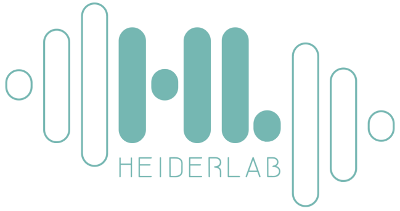CORona Drug InTEractions database
Rutin and flavone analogs as prospective SARS-CoV-2 main protease inhibitors: In silico drug discovery study.
Mahmoud A A Ibrahim, Eslam A R Mohamed, Alaa H M Abdelrahman, Khaled S Allemailem, Mahmoud F Moustafa, Ahmed M Shawky, Ali Mahzari, Abdulrahim Refdan Hakami, Khlood A A Abdeljawaad, Mohamed A M Atia,
Abstract
Coronavirus disease 2019 (COVID-19) is a new pandemic characterized by quick spreading and illness of the respiratory system. To date, there is no specific therapy for Severe Acute Respiratory Syndrome coronavirus 2 (SARS-CoV-2). Flavonoids, especially rutin, have attracted considerable interest as a prospective SARS-CoV-2 main protease (Mpro) inhibitor. In this study, a database containing 2017 flavone analogs was prepared and screened against SARS-CoV-2 Mpro using the molecular docking technique. According to the results, 371 flavone analogs exhibited good potency towards Mpro with docking scores less than -9.0 kcal/mol. Molecular dynamics (MD) simulations, followed by molecular mechanics-generalized Born surface area (MM/GBSA) binding energy calculations, were performed for the top potent analogs in complex with Mpro. Compared to rutin, PubChem-129-716-607 and PubChem-885-071-27 showed better binding affinities against SARS-CoV-2 Mpro over 150 ns MD course with ΔGbinding values of -69.0 and -68.1 kcal/mol, respectively. Structural and energetic analyses demonstrated high stability of the identified analogs inside the SARS-CoV-2 Mpro active site over 150 ns MD simulations. The oral bioavailabilities of probable SARS-CoV-2 Mpro inhibitors were underpinned using drug-likeness parameters. A comparison of the binding affinities demonstrated that the MM/GBSA binding energies of the identified flavone analogs were approximately three and two times less than those of lopinavir and baicalein, respectively. In conclusion, PubChem-129-716-607 and PubChem-885-071-27 are promising anti-COVID-19 drug candidates that warrant further clinical investigations.
Source: PubMed
Related molecules
Related interactions
| Target | Target affiliation | Drug | Type | Result |
|---|---|---|---|---|
| Target | Target affiliation | Drug | Type | Result |
| Name | Synonyms | Genes | Origin |
|---|---|---|---|
| Name | Synonyms | Genes | Origin |
| Name | Synonyms | PubChem | DrugBank | RCSB PDB | ATC |
|---|---|---|---|---|---|
| Name | Synonyms | PubChem | DrugBank | RCSB PDB | ATC |
| Title | Authors | DOI | Source | Article type | Date |
|---|---|---|---|---|---|
| Title | Authors | DOI | Source | Article type | Date |
| Title | Status | Phases | Start Date | Prim. Comp. Date | Comp. Date | First Post. Date |
|---|---|---|---|---|---|---|
| Title | Status | Phases | Start Date | Prim. Comp. Date | Comp. Date | First Post. Date |
CORDITE (CORona Drug InTEractions database) collects and aggregates data from PubMed, MedRxiv, BioRxiv, ChemRxiv and PMC for SARS-CoV-2. Its main focus is set on drug interactions either addressing viral proteins or human proteins that could be used to treat COVID. It collects and provides up-to-date information on computational predictions, in vitro, as well as in vivo study data.
The information provided is for research only and we cannot guarantee the correctness of the data.
Please contact dominik.heider@uni-muenster.de for further information.
Programmable access
There is an open API for access programmatically to the database. The API will print a JSON output:
- Interactions
https://cordite-api.uni-muenster.de/api.php?action=list&table=interaction
- Targets
https://cordite-api.uni-muenster.de/api.php?action=list&table=target
- Drugs
https://cordite-api.uni-muenster.de/api.php?action=list&table=drug
- Publications
https://cordite-api.uni-muenster.de/api.php?action=list&table=publication
- Clinical trials
https://cordite-api.uni-muenster.de/api.php?action=list&table=clinical_trial

